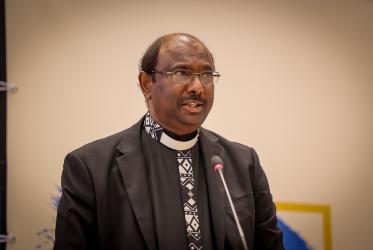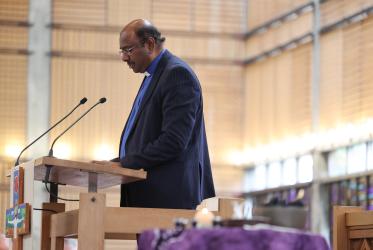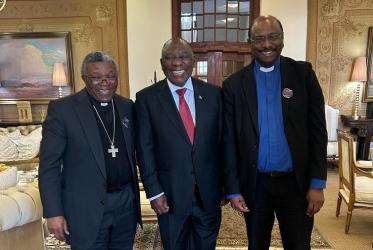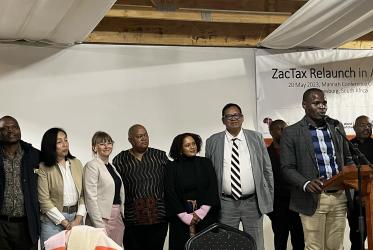Celebrating the life and works of Nelson Mandela, Dr Agnes Abuom, moderator of the World Council of Churches (WCC) Central Committee, called Mandela a “global icon of justice, peace and dignity” for Africa and the world.
An anti-apartheid activist, South Africa’s first black president and a Nobel peace laureate, Mandela passed away on 5 December in Johannesburg.
“We affirm the role played by this global icon for inspiring and restoring dignity for Africa and revitalizing hope for the marginalized and oppressed of the world,” said Abuom.
Abuom, a member of the laity who comes from the Anglican Church of Kenya, and has worked for economic justice, peace and reconciliation, called Mandela’s legacy an inspiration for the churches.
Abuom expressed deep appreciation for Mandela’s support and respect for the ecumenical movement for its contributions to the struggle against apartheid.
“Mandela’s message during his visit to the WCC headquarters in Geneva after his release from prison in 1990, and his address at the WCC 8th Assembly in Harare, Zimbabwe in 1998, greatly encouraged and strengthened our commitment in our search for reconciliation, healing and forgiveness,” she said.
Abuom added that “Mandela’s legacy includes his capacity to forgive his enemies, which inspires us in a world where we all yearn for a just peace.”
“Our thoughts and prayers go to his family and the people of South Africa during this time of mourning. May his memory be eternal!” she concluded.
WCC honours the legacy of Mandela (WCC news release of 6 December)






